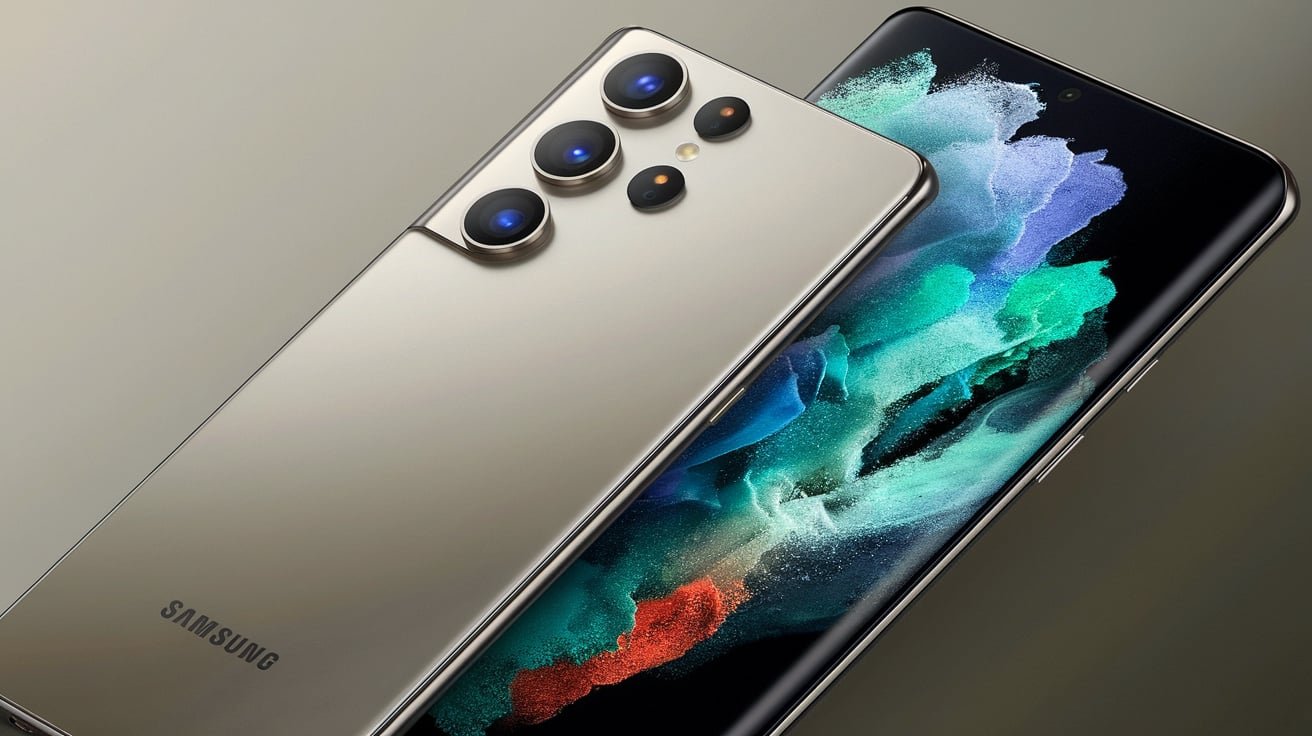Table of Contents
Introduction to Project Astra
Project Astra represents a groundbreaking initiative aimed at enhancing the way we interact with our environment through advanced artificial intelligence. This project seeks to utilize the capabilities of phone cameras, along with camera-equipped glasses, to analyze and interpret the surrounding world. By integrating this technology, users will be able to gain insights and real-time information about their environment, improving informational accessibility and user experience.
The official unveiling of Project Astra took place at Samsung’s Unpacked 2025 event, where the highlight of the announcement was the introduction of the Samsung Galaxy S25. This device marks a significant evolution in smartphone technology, being the first to fully integrate the functionalities of Project Astra. The Galaxy S25’s advanced camera systems combined with the sophisticated AI algorithms are designed to provide seamless interaction between the device and the user’s environment, making it a notable advancement in the realm of mobile technology.
Furthermore, Project Astra is positioned within Google’s Gemini 2.0 framework, which focuses on creating intelligent systems that enhance user experience across various platforms. This collaboration between Samsung and Google signifies a strategic alignment in the pursuit of innovation, aiming to redefine how technological devices can augment human interaction with the physical world. Through this integration, users can expect to experience a new dimension of interaction, where information is readily available and contextualized through the lens of their devices.
As Project Astra evolves, its implications could extend beyond mere functionality, potentially influencing sectors such as education, tourism, and navigation. The fusion of A I with everyday technology heralds a future where smartphones are not just communication tools, but gateways to an enriched understanding of our surroundings.
Features and Capabilities of Project Astra
Project Astra represents a significant advancement in artificial intelligence, particularly as it integrates seamlessly with the Samsung Galaxy S25. This innovative technology is designed to provide users with personalized answers to their inquiries through intuitive interactions, primarily utilizing the device’s camera. Such capabilities enable a range of applications that enhance everyday activities, simplifying tasks that traditionally require more effort or time.
One of the standout features of Project Astra is its ability to evaluate clothing sizes through visual recognition. Users can simply point their camera at items of clothing to receive instant recommendations on fit and style, an application that is particularly useful in the context of online shopping, where accurate fit can be difficult to ascertain. This technology not only enhances user satisfaction but also reduces the incidence of returns, benefitting both consumers and retailers alike. Google DeepMind CEO Demis Hassabis has highlighted this feature as a transformative solution in e-commerce, showcasing how Project Astra’s sophisticated AI processes can improve the online shopping experience.
Furthermore, Project Astra extends its capabilities to culinary tasks, guiding users through various cooking processes. By scanning ingredients or dishes, the AI can provide step-by-step instructions tailored to the user’s specific situation, whether that involves adjusting recipes based on available ingredients or offering cooking tips to improve the outcome. This feature enables both novice and experienced cooks to explore new recipes while providing a seamless cooking experience without the need to consult separate resources.
Overall, the integration of Project Astra into the Samsung Galaxy S25 encapsulates a leap forward in user-centric technology, demonstrating how AI can enrich daily life and streamline tasks through its intelligent features. The potential applications of this technology are vast, potentially transforming how we interact with digital devices in our everyday routines.
Privacy Concerns and Solutions
As advanced AI technologies such as Project Astra become increasingly integrated with devices like the Samsung Galaxy S25, privacy considerations take center stage. One of the prominent concerns arises from the potential for the device’s camera to continuously analyze the environment. This functionality could inadvertently compromise users’ privacy, leading to the unintentional collection of sensitive data. For instance, a smartphone scanning public spaces may capture images that include bystanders, which raises ethical questions about consent and data usage.
In light of these concerns, it is essential to outline the measures implemented to mitigate potential privacy risks associated with this technology. Google has proactively addressed these issues by incorporating robust privacy safeguards within Project Astra. One key feature includes an explicit user consent mechanism, which ensures that individuals are informed before any data collection takes place. This process not only ensures legal compliance but also empowers users to make informed decisions regarding their data sharing preferences.
Moreover, Google has instituted strict data handling protocols that regulate how captured information is processed and stored. This includes anonymization techniques that strip identifiable information from data, reducing the risk of personal information exposure. The company has also integrated clear user notifications and settings, allowing individuals to control their privacy preferences easily. Users can toggle camera functionalities on and off, providing transparency and control over what data is shared and when.
By focusing on these preventive measures, Google seeks to balance the innovative capabilities of AI technologies with the imperative of safeguarding personal privacy. This thoughtful approach acknowledges the importance of user trust as essential for the successful adoption of advanced AI applications on devices like the Samsung Galaxy S25.
The Future of AI in the Samsung Galaxy S25
Project Astra signifies a transformative chapter in the integration of artificial intelligence within the Samsung Galaxy S25. Building upon the existing AI capabilities of previous Galaxy models, this new initiative aims to elevate user experience by incorporating advanced features that respond intuitively to user needs. Central to this vision is the introduction of enhanced functionalities that leverage sophisticated AI algorithms, paving the way for smarter interactions.
One of the key innovations is the AI select tool, which empowers users to interact with their devices more efficiently. This tool intelligently predicts the user’s preferred actions based on contextual data and patterns of usage. By learning from user interactions, the AI select tool enables quicker decision-making and interaction, whether it be selecting content or navigating through apps. Such advancements illustrate how the Galaxy S25 leverages AI to reduce cognitive load and streamline daily tasks, ultimately enhancing productivity.
Moreover, the Galaxy S25 also introduces enhanced photo gallery functionalities that utilize machine learning to curate and organize images effectively. This feature enables the automatic tagging of photos, grouping them based on themes, occasions, or even individuals. The AI-driven gallery enriches the user experience by making it easier to locate cherished memories or share them with others, thereby showcasing the seamless fusion of AI and personal technology.
The implications of these developments extend beyond individual features. By setting a new standard for smartphone capabilities, the Galaxy S25 serves as a benchmark for future devices, influencing how consumers engage with technology. The advancements associated with Project Astra highlight Samsung’s commitment to evolving its AI ecosystem, ensuring that users not only benefit from enhanced functionalities but also enjoy a more personalized and responsive experience with their devices.





